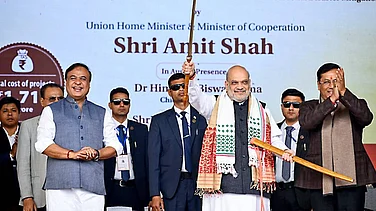The governor of a state has to act on the recommendation of the council of ministers, the Supreme Court said on Friday while dismissing an appeal challenging the decision of the Madras High Court refusing to consider a petition against the continuance of V Senthil Balaji as a minister in the Tamil Nadu government despite his arrest. A bench of Justices Abhay S Oka and Ujjal Bhuyan said no interference was called for by the apex court, which concurs with the view taken by the high court. Prima facie, the high court is right that the Governor could not have dismissed the minister. The Governor has to act on the recommendation of the council of ministers.
"After having heard the petitioner in person and perusing the impugned judgement of the high court, we concur with the view taken by the high court. Therefore no interference is called for under Article 136 of the Constitution," the bench said. Article 136 refers to the discretionary powers of the Supreme Court to allow special leave petitions. The top court was hearing an appeal filed by advocate M L Ravi against an order of the Madras High Court refusing to issue a direction on his petition for quashing Tamil Nadu Governor R N Ravi's order keeping in abeyance his earlier order sacking Balaji from the ministry.
Ravi, who has been locked in an intermittent tussle with the state's DMK government on several issues, had in June 2023 "dismissed" Balaji from the council of ministers "with immediate effect", but as criticism mounted over his action, he informed Chief Minister M K Stalin that he wanted to keep his decision in abeyance. While referring to the governor's discretionary powers in such matters, the high court had said, "If the Governor chooses to 'withdraw his pleasure' in respect of a Minister, he must exercise his discretion with the knowledge of the Chief Minister and not unilaterally. In the present case, the Chief Minister had never consented for the exercise of discretion by the Governor."
On the petitioner's submissions about Balaji's disqualification, the high court had said in the absence of any statutory disqualification incurred by him, it would not be permissible for the court to issue directions to the governor to take a decision in a particular manner. "Moreover, it would also be a matter of debate as to whether the Governor can unilaterally disqualify a person officiating as a Minister, though he has not incurred any disqualification under the Constitution of India or under any statute," the high court had said.
Balaji was arrested on June 14 last year by the Enforcement Directorate in a money laundering case linked to a cash-for-jobs scam when he was the transport minister under an earlier AIADMK government. Balaji was divested of his portfolios after his arrest but continues to be a minister.





















